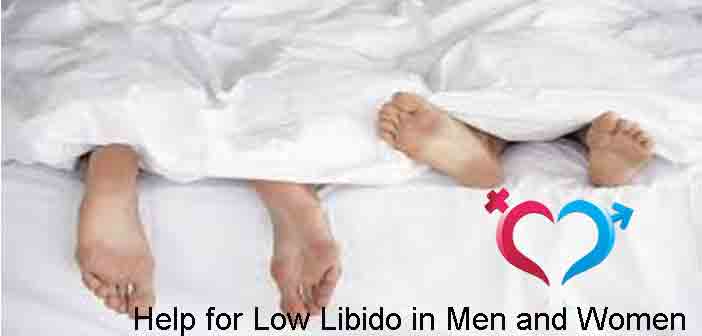Sexual desire naturally ebbs and flows over time, but if yours has been on the low end of the scale for longer than you would like, it may be time to seek medical advice.
When your sex drive is low, it would be nice if getting interested in sex again were as easy as taking a pill. But there are no approved prescription drugs for men or women that are specifically designed to cure low libido.
However, doctors do have options for medically increasing libido. Here are some ways low libido can be evaluated and treated.
Checking Your Hormone Levels
Testosterone helps both men and women think about and want to have sex, so when testosterone levels go down, so can libido. And it’s normal for testosterone levels to drop gradually as you age.
A blood test can show whether your testosterone levels are low and if you need hormone therapy as a supplement. A normal range for men is 300 to 1,200 nanograms per deciliter, although different laboratories may consider a slightly different range as normal. For women, a testosterone level of 30 to 95 nanograms per deciliter is typically considered normal.
If your doctor decides that you need to supplement your natural testosterone, here are the treatment options for hormone therapy:
- For men: A topical testosterone gel or cream (AndroGel, Testim) may be used or a testosterone transdermal system patch (Androderm) can be applied once a day to mimic the daily secretion of testosterone, says Robert E. Brannigan, MD, associate professor of urology at the Feinberg School of Medicine at Northwestern University in Chicago. Another option is an injection of testosterone cypionate, which patients can learn to give themselves at home.The newest product available is a testosterone pellet, Testopel, that’s placed by a physician underneath the skin of the buttock under local anesthesia. It offers a time-released dosage of testosterone over three to six months, Dr. Brannigan says. Oral forms of testosterone aren’t yet available in the United States, but some are under development.
- For women: The U.S. Food and Drug Administration hasn’t approved testosterone supplements as a treatment for women with low libido, but doctors sometimes prescribe the gel or patch to women as an off-label use, says Linda Bradley, MD, vice chair and ob-gyn for the Women’s Health Institute at the Cleveland Clinic in Ohio.
Women are prescribed a much smaller dose than what’s given to men. In women, testosterone can cause acne, hair growth on the upper lip and chest, a deeper voice, weight gain, male-patterned baldness, a rise in cholesterol levels, and a heightened risk for breast cancer. It’s extremely important to weigh the possible risks with your doctor before you begin taking it.
Doctors also may prescribe topical or oral estrogen for women after menopause, which can help prevent vaginal dryness and increase vaginal elasticity, making sex more pleasurable, which can help jumpstart libido. Estrogen therapy also carries associated risks that should be discussed with your doctor.
Making Prescription Drug Changes
If your testosterone levels are normal, the next step is to look at the medications you’re taking. Antidepressants, particularly selective serotonin reuptake inhibitors, or SSRIs, are known to lower libido, cause problems with erections, and extend the time it takes a man to climax and ejaculate, Brannigan says.
Switching your antidepressant to buproprion HCI (Wellbutrin and others) may help because this particular antidepressant has shown sex-positive effects, says Megan Fleming, PhD, clinical psychologist, certified sex therapist, and founder of the sexual health and rehabilitation program at Beth Israel Medical Center in New York City.
In a recent study of 234 men who experienced sexual dysfunction after taking an SSRI, researchers found that after 12 weeks the men who switched to buproprion had significant improvements in erectile function and reported an improvement in sexual experience compared to men who took a placebo.
Researchers have also studied the effect of buproprion on women. In a study of 232 women with low sex drive, women who took the prescription drug reported that sexual thoughts and desire more than doubled after 12 weeks.
Other drugs, such as blood pressure medications, can also negatively affect libido. Your doctor can try a different class of drugs or lower the drug’s dose and add another if it’s causing problems, Fleming says.
Getting Treatment for Other Health Issues
Health issues such as high blood pressure, type 2 diabetes, heart disease, and arthritis can affect your sexual health and lead to low libido, so getting the proper treatment can help to restore your sex drive.
Stress, anxiety, and depression are also huge libido busters. The cumulative wear and tear of uncertainty in your job or living in a poor economy directly affects intimacy and libido, Brannigan says. This happens because stress triggers the fight or flight response in the body, which shuts down libido and sexual functions. “It makes sense because if you’re under threat or distress it doesn’t make sense to have sex,” he says. That’s why it’s important to your sexual health to be treated for any psychological issues and to work with a counselor if you need to.
As you seek out treatment for low libido, don’t forget the tried and true libido boosters: getting rid of distractions, like an endlessly ringing cell phone, and refocusing attention on your significant other, suggests Bradley. “We minimize the importance of that,” she says. “There’s not enough foreplay, not enough date nights. Being old-fashioned and getting rid of the complexities of life may make things better.”

